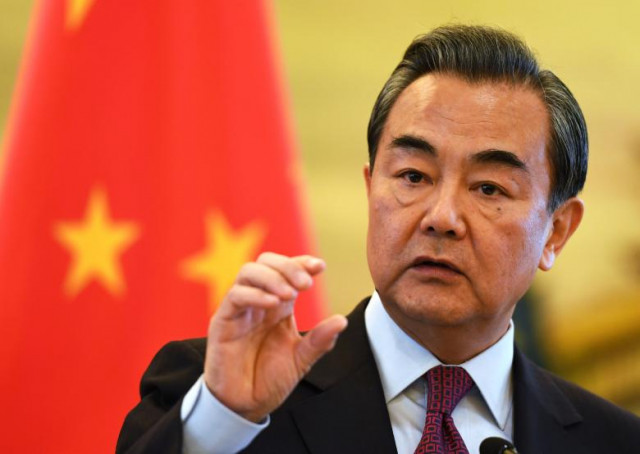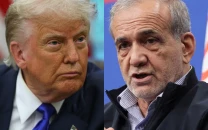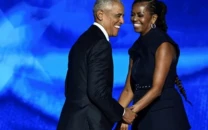China warns Asian countries to be vigilant on US strategy
China's top diplomat Wang Yi described Washington’s 'Indo-Pacific' strategy as a 'security risk' for East Asia

The Chinese government’s top diplomat, State Councillor Wang Yi, on Tuesday urged Asian countries to remain “vigilant” over the risk of US strategy stoking geopolitical competition in the South China Sea and other parts of the region.
Beijing and members of the Association of South East Asian Nations (ASEAN) should work together to remove “external disruption” in the South China Sea, Wang said during a joint news conference with Malaysia’s foreign minister.
“We (China and Malaysia) are both of the view that the South China Sea should not be a ground for major power wrestling teeming with warships,” said Wang, who is on a short Southeast Asian tour.
“China and ASEAN have full capacity and wisdom, as well as responsibility, to maintain peace and tranquillity in (the) South China Sea.”
Malaysia’s Foreign Minister Hishammuddin Hussein said maritime disputes should be resolved peacefully through regional dialogue.
China has in recent months held military exercises in disputed parts of the strategic waterway, while Washington has accused Beijing of attempting to build a “maritime empire” in the area.
Wang described Washington’s “Indo-Pacific” strategy, which aims to cast the United States as a trustworthy partner in the region, as a “security risk” for East Asia.
“What it pursues is to trumpet the old-fashioned cold war mentality and start up confrontation among different groups and blocks, and stoke geopolitical competition,” he said.
“I believe all parties sees this clearly and will stay vigilant against it.”
US Secretary of State Mike Pompeo has previously said Washington wants a “free and open” Asia not dominated by any one country.
The Philippines’ top military commander said the US-China rivalry meant the situation at sea had become “very tense”.
General Gilbert Gapay told foreign media in Manila that the United States had stepped up naval patrols and China’s coastguard had been very active, while its maritime militia were “practically swarming most areas” of the Philippines’ Exclusive Economic Zone.
During Tuesday’s joint briefing, Malaysia’s Hishammuddin said China had committed to purchase 1.7 million tonnes of palm oil until 2023 and pledged to encourage increased shipments of sustainably produced Malaysian palm oil.



















COMMENTS
Comments are moderated and generally will be posted if they are on-topic and not abusive.
For more information, please see our Comments FAQ